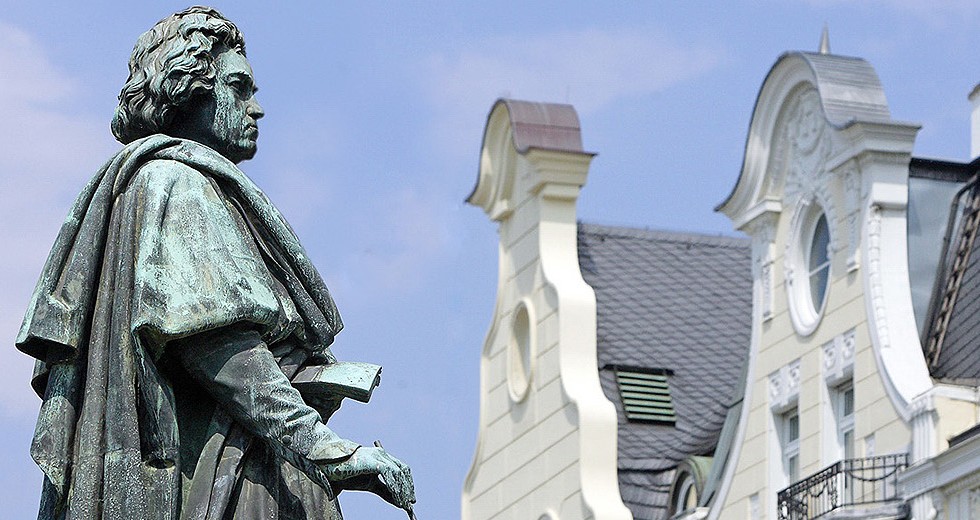
Though the Ravinia Festival joins the world in celebrating the centennial of Leonard Bernstein this season, three works by another capital B — Ludwig van Beethoven — will be featured during the Chicago Symphony Orchestra’s residency this summer.
Marin Alsop, Ravinia’s first-ever artistic curator, heads up the pack on July 14 with Beethoven’s Ninth, featuring the Chicago Symphony Chorus and soloists soprano Tamara Wilson, mezzo-soprano Michelle DeYoung, tenor Paul Appleby and bass-baritone Ryan Speedo Green. Gustavo Dudamel, music director of the Los Angeles Philharmonic, makes his eagerly awaited debut leading the Seventh Symphony on July 18 with an all-Beethoven program that also features equally starry collaborator Yuja Wang performing the First Piano Concerto. Last but not least of Ravinia’s triptych is the Fifth, in the hands of Vasily Petrenko, chief conductor of the Oslo Philharmonic Orchestra and the Royal Liverpool Philharmonic Orchestra, on Aug. 4.
“If you read biographies, Beethoven was doing a lot of things which were not conventional at the time,” Petrenko said. “He was always looking for something new. Also, this is a man who in many ways we are obliged to for the modern orchestra — what it is, how it looks, how many instruments there are. He was the one who moved the genre of the symphony so much forward.”
Both Alsop and Petrenko recall early experiences of Beethoven that held lasting lessons.
“I grew up in a house filled with music,” Alsop said. “My parents were both professional musicians, so Beethoven was another member of the family. They played in a wonderful string quartet, and I remember, when I was about 12 years old, they were rehearsing a piece, and I came downstairs and said, ‘Ah! I hate modern music!’ And my dad said, ‘This is Beethoven!’ I said, ‘Come on. Don’t pull my leg.’ They were rehearsing the Grosse Fuge. I thought it was new music or Bartók or something. That was so shocking to me that it got me starting to think about Beethoven in a new way.”
Petrenko remembers an incident from the early ’90s, when Sir Georg Solti came to the St. Petersburg Philharmonic to conduct a program of Brahms and Beethoven. “The St. Petersburg Phil is an amazing orchestra, one of the greatest in the world, but I would say that Beethoven and the First Vienna School at that time wasn’t their strongest spot. They had a lot of experience in Russian repertoire, and at that time, they tried to play Beethoven as if they were playing Tchaikovsky! Sir Georg came to them and started to suggest things which much later were common in the Western world — about bowing, articulation, attention to dynamic differences and tempo — practical things. And the orchestra, for the first and second days, didn’t want to change at all. Then came the dress rehearsal, when the orchestra for the first time really tried to do what [Solti] suggested, because they had no choice: They had a concert that night! So they tried it, and actually, it worked. And you could see, from the great resistance and resilience, the orchestra started to enjoy what they were doing and went with him. And this concert was probably the best I ever heard them at the time playing Beethoven.”
This is an excerpt of an article published in the Ravinia magazine; to read the complete version, click here.